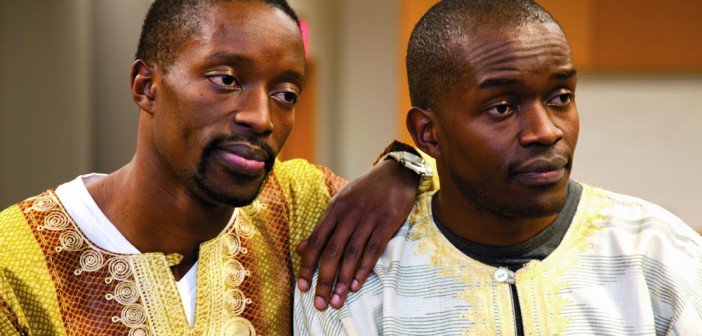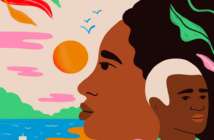Power of Community
Ask Ochieng’ about his parents and you will get one of his illuminating smiles.
“My father was a high school chemistry teacher, and my mother was a primary school teacher. They instilled love of education in us and really wanted us to understand what community was all about,” he says. “Dad was chairman of our Parent Teacher Organization, and he helped build our local primary school. He really believed in service to one’s neighbors. We grew up embracing that.”
Erastus Ochieng’ believed, in particular, that Lwala deserved a hospital. “Growing up in a rural village, with no running water, no electricity, and very limited access to transportation and health care, you would see the devastation,” Milton Ochieng’ says. “People would die in childbirth, or from seizures and convulsions caused by malaria. Families would carry patients, on mattresses or beds or in wheelbarrows, to the nearest paved road 7 kilometers away. The lucky ones would make it to a hospital.”
Ochieng’ says his father would read to him Where There Is No Doctor, a book about a village much like Lwala. Later, he would reread it on his own. “It was my favorite book, growing up,” he says.
Enrolled in boarding school by fifth grade, Ochieng’ excelled at entrance exams required for Alliance High School, the oldest and most prestigious secondary school in Kenya, through which he spent nine weeks in an exchange program with the Brooks School in North Andover, MA. He then earned a scholarship to Dartmouth College, followed by medical school at Vanderbilt, residency at Washington University in St. Louis, and now his fellowship at Brown.
But first, there was the significant challenge of securing the $900 plane ticket needed to travel to the United States. Lwala stepped up. Neighbors sold chickens and livestock to raise the funds.
“Represent us well,” Ochieng’s neighbors told him. “And come back.”
Grief and Responsibility
Ochieng’s college years brought growth and loss on an epic scale. He studied, made friends, coached New Hampshire children in soccer, and volunteered on a mission to build a clinic in Nicaragua, where he began to see the possibility of achieving his father’s dream.
He and Fred, who had joined him at Dartmouth, shared their vision of a hospital in Lwala with coaches, professors, friends, and the children on the soccer teams they coached. The local newspaper published a story, and strangers sent money. Children raised $2,000 in pennies. Fred spoke at a weekend conference and returned with more than $9,000 in donations.
Back in Lwala, Erastus Ochieng’ began to make preparations—recruiting a committee, securing land at a steep discount, and finding volunteers to prepare the site. But he never saw the dream take flight.
The Ochiengs’ mother, Margaret, died of HIV/AIDS in 2004. The disease claimed Erastus the following year, on the day of Milton Ochieng’s last college exam—one month before groundbreaking for the clinic that would become the Erastus Ochieng’ Memorial Lwala Community Hospital.
“My five siblings and I joined Africa’s millions of AIDS orphans that day,” Milton Ochieng’ says. “We looked at our youngest brother, then 9 years old, and renewed our vow to do something to keep it from happening to other kids.”




